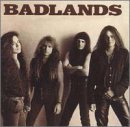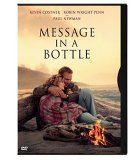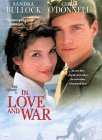A couple of nights ago, I saw a segment on Robbin Crosby, the lead guitarist from Ratt. Crosby is believed to have contracted AIDS by sharing needles with someone while doing heroine. He died in 2002. I was a big fan of Ratt, but seeing that segment reminded me of another group that I was into even more – Badlands, and how their lead singer, Ray Gillen, also died (in 1993) of AIDS.
Badlands only released two studio albums (a third was released after Gillen's death) and they were both full of great, hook-laden, bluesy rock songs that were nearly impossible to not get caught up in. I only saw the band live one time. I think it was 1991. They played in a bar in a bowling alley in Omaha, Nebraska that held probably no more than 350 people. The place was full that night, but not so much that you couldn't move. My friend and I were about 10 feet from the stage and from the opening song everybody seemed to be enamored with them.
About a third of the way through their set, I turned to my friend and said, "I've never heard a band sound so much like their albums." They nailed Show Me the Way, Love Don't Mean a Thing, and Dancing on the Edge. From the passion in Gillen's voice, to the perfect guitar licks laid down by Jake E. Lee, to the incredible bass playing of Greg Chaisson, they were so in sync that I had goose bumps. This was how music was supposed to sound live.
Toward the end of the show, they performed their big hit, Dreams in the Dark, and it too was incredible. I hated to see the show end. In fact, before the night was through, I knew that I'd just witnessed the best live show I'd ever seen – and I've seen a lot of them – many hundreds in fact. Something else struck me that night. I was in the process of figuring out what I believed spiritually at the time and so many of the band's lyrics spoke directly to me in a new way that night – even though I knew most of them by heart.
During Shine On, Gillen sang: "Oh my Lord, I've been a sinner / In my time I've seen my ways / And if I beg down on my knees / Would you hear these words I say / 'Cause in the dark I need your vision / Don't let this poor soul fade away." And during Streets Cry Freedom, Gillen sang: "There is no reason / For livin' in sin / I don't believe when they say hey boy, you better give in / You know I'll fight for what I know / Till the day that I die / 'Cause I'm better off dead / Then buried along with my pride."
They also covered the famous James Taylor tune, Fire and Rain. The hair on the back of my neck stood on end as Gillen sang the following lyrics with more passion than I've heard before or since from any performer, "Won't look down upon me Jesus / You've got to help me make a stand / I just can't make it through another day…" Standing in the middle of a bar, listening to a band that most Christians have never heard of, I felt closer to God than I'd ever felt before.
I don't know how that one night fits into the big scheme of things regarding my eventual spiritual walk towards Christianity, but it definitely fits into the mix. (I wrote an article for Light & Life magazine a couple of years ago about my journey if you are really interested in reading more.) I also don't know what Ray Gillen was thinking as he helped to pen lyrics that touched my soul. But I do know that Bassist Greg Chaisson went on to record music in the Christian music industry, so something spiritual was happening in the band.
I think most of us tend to






